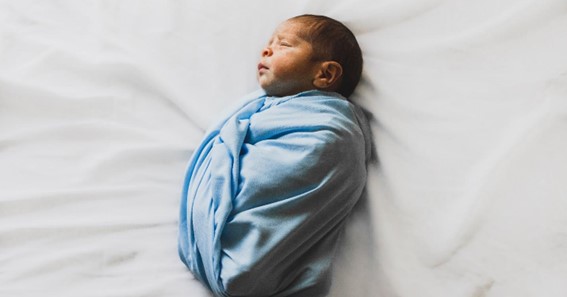When a baby comes into this world, so do a lot of responsibilities for the parents. As a parent, it becomes your job to provide for them and protect them from harm.
You must ensure your child is free of any diseases or infections and receives the best care.
The few weeks after the delivery are the trickiest. The infant is very sensitive to illnesses and infections and needs constant care.
Hence, the child must receive the best care to remain healthy and immune to diseases.
However, as a new parent, you will face numerous hazards like; chemicals, choking hazards, immunity issues, ingestion, and lactose intolerance.
Newborns are prone to all sorts of bacteria and viruses. These threats could be neutralized by carefully handling the baby and paying attention to their medical condition. But, that is not the case with birth injuries.
Birth injuries usually occur during delivery. A birth injury could result from poor handling of the child, lack of care by the hospital staff, or simple negligence on the part of the doctors.
Such injuries should be a cause of worry. Many wounds and bruises could last a lifetime, and some injuries could also be fatal or damage the infant’s bone structure.
In case of a birth injury due to negligence on the part of the hospital, pursuing legal assistance might be your best option.
By hiring experienced counsel to fight your case, you can get a suitable settlement and help prevent such ignorance in the future.
You don’t have to depend entirely on doctors for your child’s well-being. There are numerous ways you can ensure that your child is healthy.
-
Handling a Newborn
Simply handling a newborn could be a challenge in itself. You could damage the child’s body if anything goes wrong since it is highly delicate.
This could be challenging, especially for first-time parents. There are a, however, a few things to consider which can make it safer;
- Washing your hands; as babies are prone to bacteria, it is a good idea to wash your hands first.
- Support the baby’s head and neck; you should cradle the baby’s head while lifting the baby. While carrying the baby, you need to support their head all the time.
- Don’t jerk/ shake the baby; you should not shake the baby under any circumstances. Sudden movements can cause fatal internal bleeding since babies are highly sensitive.
You must be careful while handling the baby to ensure the child’s health and safety.
Click here – 6 Ways to Contribute to the Betterment of Education
-
Soothing
For the first few weeks, the newborn is agitated and cranky. Infants tend to cry often to let their parents know something is wrong. It could be hard at first to figure out what the child needs.
However, it is not healthy for the child to keep crying as it can have neurological impacts on the child’s brain development. This can cause problems in the future.
By soothing the child, you may be able to prevent any long-term damage. The best way to do so is to cradle the child in your arms or hold the baby close to your chest.
You can also hum a tune or sing a song, as it gives a calming effect. Crying for too long can leave the baby with a sore throat, which can cause issues and irritation for the child. You must soothe the baby to keep them calm and relaxed.
-
Diapering
Diapering is another important thing to consider for the newborn’s health as it is directly related to hygiene.
Infants have small and weak bladders. This means they don’t control their excretion and would dirty their diapers.
This could be a concern as changing diapers regularly is very important. Filthy diapers can cause rash and infection. If a baby is left in a wet diaper, they could catch a fever, which could be dangerous for an infant.
Hence, changing your baby’s diapers is important as soon as possible. It would help if you also cleaned the area with water and soap as often as possible to kill infection and bacteria.
-
Vaccination
As we know, a newborn is highly sensitive to external bacteria and viruses. Different viruses could be fatal for a child. Hence, it is important to take cautionary measures.
Getting your child vaccinated is an important part of parenting. As it would help keep them safe from different diseases.
For instance, you can get your newborn vaccinated against Hepatitis B right away. Other vaccinations should be considered at intervals until the child is four.
You can also consider any adults and children in constant contact with the baby to be vaccinated.
-
Feeding
As your baby grows, they move from milk to more solid foods. Initially, most children consume breast milk.
The World Health Organization recommends breastfeeding as it promotes growth and builds the child’s immune system.
However, breastfeeding might not be an option for some mothers due to their health issues. Some infants might also be lactose intolerant.
In such a case, you should consult your doctor, who can suggest alternatives like lactose-free baby formula.
-
Protecting Baby’s Skin
While having a ‘baby soft’ skin is a compliment, a baby’s skin is very sensitive and could be easily damaged.
You must make sure it is protected at all times. There are a few ways to do so;
- Keeping the baby out of the sun.
- Moisturizing regularly to prevent dry skin.
- Bathing the baby in lukewarm water
- Use a soft cloth for wiping and cleaning
You can protect your child’s skin from damage and prevent skin-related diseases by ensuring these factors.
-
Seek Additional Help
Taking care of an infant alone is an impossible task. You can always seek help from your family and friends.
More experienced parents could help you manage and advise you on different issues you might face with the baby.
You must be able to look after your baby yourself. However, it would help if you were willing to consult a doctor, especially if the child is suffering from a disease or an infection.
Parenting could be very stressful. You easily become agitated and stressed when looking after a baby, which may lead you to neglect your child. In such a scenario, it is smart to seek help from family or hire a babysitter.
Conclusion
Babies are delicate, especially newborns. They need extensive care and attention constantly. A parent needs to prioritize their child during the first few months as children require love and affection to grow.
To maintain a child’s health, you must follow all the precautions. And consider the doctor’s recommendations as well.
Click here – Key things you should know before you decide to purchase contact lenses





